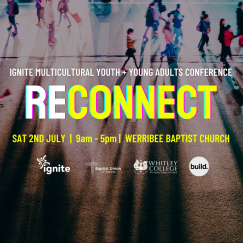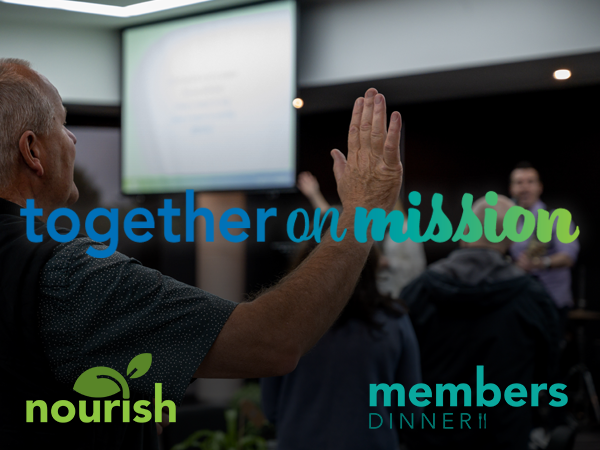12th October 2020
Flourishing Spirituality Devotion Part 2: Spiritual Rhythms – Praise and Worship

Part 2: Spiritual Rhythms – Praise and Worship
by Lyn Williams and Andrew Naylor
Lyn:
Praise and worship as a spiritual rhythm has a vital place in our lives as followers of Christ, individually as well as corporately, that is, in the regular gatherings of our church and faith communities.
The word ‘rhythm’ speaks of a recurring pattern. In thinking about how a regular rhythm of praise and worship helps grow our spirituality, I am reminded of how helpful music with a strong rhythm and beat is for exercising. There is something very motivating about it that spurs us on to keep going! Similarly, a regular rhythm of praise and worship spurs us on and encourages us in our faith journey. As we intentionally create opportunities in our day to day for expressing our worship, praise and gratitude to God, we naturally find our connection and relationship with him renewed and deepened. The benefits of practising gratitude have become well known from a health perspective for enhancing our sense of wellbeing. I would suggest this takes on a greater dimension when we are practising spiritual gratitude – that is, praise to God for who he is and his character, his work in our lives and our world. As we worship and magnify Christ, we lift our eyes above our circumstances, our perspective enlarges and changes for the better. In these moments we experience God’s rest and refreshment through the presence of the Holy Spirit.
Our worship and praise flow out of our relationship with Christ as we abide in him and walk in step with the Holy Spirit; note however, that ‘abiding’ and ‘walking’ require an intentionality on our part which is where a rhythm of praise and worship plays an important role (along with other spiritual practices).
Many people naturally associate worship with singing and we know that historically, singing has had a significant role in the rhythm of worship gatherings across most cultures since biblical times. It is also a powerful tool for many of us on a personal level when it comes to our praise and worship of God. For me, worship in song is an integral part of my faith journey and I can think of many, many songs and hymns that have been deeply significant in different circumstances throughout my life. Some of these songs have literally led to quite transformational moments. (Below, Andrew Naylor reflects on his experience of this and expands on the significance of song in worship).
With the disruption of COVID to our church physical gatherings for most of this year, communal singing has obviously not been possible during this time. I have heard a lot of people say how much they are missing singing together. It’s just not quite the same watching someone sing on a livestream as to actually physically being in the same place together and lifting up a united sound of God’s praise…and we look forward to the day when we can do this again!
It’s helpful to remind ourselves that worship and praise can take on broader expressions than singing. Here are just a few suggestions: praying scripture aloud like the Psalms or Paul’s prayers, reading prayers of the early church mothers and fathers, the use of art, the use of written liturgy, revisiting some of the great hymns over the centuries, listening to beautiful music, breathing in the wonder of creation and nature, silence and reflection, etc.…it will look different for each of us, but it’s important that we find ways of fuelling our rhythm of worship in our lifelong journey of spiritual transformation. I like this quote from songwriter and author, Matt Redman when he speaks about the connection of revelation and response in worship: All worship is a response to a revelation–it’s only as we breathe in more of the wonders of God that we can breathe out a fuller response to Him…. (Matt Redman, from his book FaceDown). May we each find ways of breathing in the wonders of God as we increase our revelation of him and in turn, pour out our worship and praise. A regular rhythm of this will certainly help us flourish and grow in our spirituality.
Andrew:
I made a commitment to follow Christ at the age of 21. At the time, I was playing five nights a week in one of the best piano bar/restaurants in New Zealand. Cutting a long story short, a few months later I was in a painting/labouring gang where part of my job was doing all the water-blasting. In the meantime, I had joined a local church. Having come from a ‘classical’ musical family and having progressed to more rock/jazz/pop expressions, I had walked into this ‘modern’ church and heard music like I’d never heard before! To my ears, it was terrible! I felt the songs were daggy, often poorly written with bad harmony and not particularly well executed. But I was on a rich journey of discovery in my relationship with God and was able to set that to one side.
One day at work I was given the job of water-blasting out a commercial meat fridge that had never been cleaned before. I found myself very cold and wet, animal fat dripping down my face and unable to see as the mist that was generated settled on my glasses. I had this deeply depressing moment thinking back to the warm, clean piano bar with a fire, wondering how on earth I had ended up in that fridge! So, I started singing some of those songs from church…some of them weren’t too bad! Immediately, my attitude shifted, and I got my first revelation of the power of worship through song. Nothing externally changed for me but everything about my internal state of being did. I could have stayed there all day. A lesson learned, and I was ready to join the church music team…
The power of song is remarkable. In addition to a whole book of Psalms we see this power many times in Scripture. Already in the time of Jacob we read that music and song played a standard place in celebration. (Gen 31:27) and then of course when the Israelites reached a new land after crossing the Red Sea, one of the first things they did was sing a song. (Exodus 15). We know that Moses, Kings David and Solomon were writers of songs that they not only taught to the people of Israel but have passed onto us, thousands of years later, where we also take courage from them. Songs that range from tragic loss through to celebration and victory, from the deepest questioning through to total affirmation, and from deep despair through to hope. Songs for every season, and songs to change every season.
In the Old Testament these God songs were as important in a King’s inner chambers as they were on a battlefield, defining both peace and war. Likewise, songs and music were standard practice in the New Testament. We read in Matthew 26:30 that Jesus and his disciples, after The Last Supper, sang a hymn before heading to the Mount of Olives and the garden of Gethsemane. Paul writes in 1 Corinthians 14:15 that he will “pray with the spirit and pray with the mind also; sing with the spirit and sing with the mind also”. In Acts 16:25, Paul and Silas are locked in an ‘inner prison’ of a gaol but praying and singing hymns of praise to God. In Col 3:16 we see the believers encouraged to “sing psalms and hymns and spiritual songs to God with thankful hearts” and John’s heavenly vision of worship as seen in Revelation describes powerful moments of communal song.
The spiritual rhythm of worship is something that has played a role in the narrative of God followers right throughout history. We have something to sing about, even when we don’t feel like it. Our reason for singing reaches something beyond where we’re at. At the top of a mountain we give glory for having been able to get there and see the sight. In the valleys we can sing about the difficulties but also about the hope, and the courage it will take to overcome. The song in our heart is something that can’t be removed.
Personally, I haven’t found it easy to sing in these difficult times we are in. For a start, I’m not participating in a live and engaging worship service every week where that opportunity is provided, however, I am trying to find other ways to worship through song – when I get a moment on my own, when I’m moving around the house or in the garden, even under my face mask when I’m out for a walk. Lifting up a song to Almighty God stops the lesser gods from rising up, those gods of fear and frustration, destruction and despondency. As we sing, we can be reminded of these encouraging words in Zeph 3:17: “For the Lord your God is living among you. He is a mighty Saviour. He will take delight in you with gladness. With his love, he will calm all your fears. He will rejoice over you with joyful songs”.
Reflection questions:
- In what ways do you feed and foster a rhythm of praise and worship in your own life?
- Are there some songs or hymns that have inspired and encouraged you in the past, particularly in the valleys? Are these songs you need to revisit again? Maybe you could share these songs with others to encourage them.
- What ways other than singing do you express praise and worship to God?
- Are there some other forms of praise and worship that you, your small group, your church or faith community could be exploring at this time when singing together is not possible?
Blessings,
Lyn Williams (Executive Assistant to Daniel Bullock)
Andrew Naylor (Partnership Development Pastor)
In previous vocations, both Lyn and Andrew spent many years leading worship and creative arts ministries in respective churches they were involved in.
Previous Devotions:
Part 1: Flourishing Spirituality At the Centre









